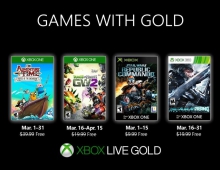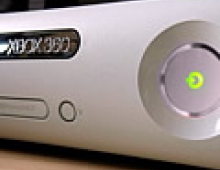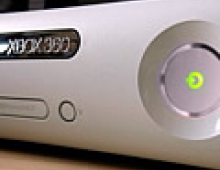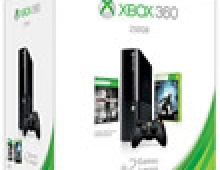
Sales of Xbox 360 Kinect Sensors and PlayStation 3 Move Motion Controllers to Boom This Holiday Season
International Data Corporation (IDC) today released results from a prediction market survey that found Americans will buy 2.5 million to 3 million Kinect sensors for their Microsoft Xbox 360 video game consoles in the fourth calendar quarter of 2010. The number of Sony PlayStation 3 (PS3) Move motion controllers sold should range between 2 million and 2.25 million by the end of this year.
Kinect launches in North America on Thursday, November 4, and is bundled with a copy of Kinect Adventures! for $149.99. The Move motion controller made its retail debut in late October and the basic bundle includes a copy of Sports Champions and a PlayStation Eye camera for $99.99. Both advanced motion-based interfaces are designed to make console video gaming experiences more intuitive and active for the whole family, and may be described as Microsoft's and Sony's response to the very successful Nintendo Wii platform, which has supported motion gaming since its 2006 debut.
"While it doesn't appear Kinect or Move will be this year's Tickle Me Elmo, millions of additional U.S. households will be enjoying motion-based gaming this holiday season," says Lewis Ward, research manager of IDC's video game industry advisory service. "Nintendo's Wii MotionPlus controller has an installed base over 10 million units right now but the new interfaces and associated games from Sony and Microsoft are going to give many shoppers pause moving forward."
Speaking of games, the same prediction market survey found that the top-selling console games in the U.S. in the fourth quarter will be: Activision's/Treyarch's Call of Duty: Black Ops; LucasArts' Star Wars: The Force Unleashed II; Electronic Arts' Medal of Honor; Microsoft's/Bungie's Halo: Reach; and Microsoft's/Lionhead's Fallout: New Vegas. Disc sales should range from approximately 11.7 million in the case of Call of Duty: Black Ops down to 4.3 million in the case of Fallout: New Vegas.
The prediction market survey was run in partnership with GamePro.com, the online arm of the popular GamePro magazine, an IDG publication. The Web-based survey was run throughout September and gathered responses from more than 750 (mostly "core" younger male) console gamers. The main difference between this prediction market and standard surveys is that participants were offered incentives based on the accuracy of their predictions about total market outcomes, and they had the option of viewing aggregated to-date responses of previous participants before making their predictions.
"While it doesn't appear Kinect or Move will be this year's Tickle Me Elmo, millions of additional U.S. households will be enjoying motion-based gaming this holiday season," says Lewis Ward, research manager of IDC's video game industry advisory service. "Nintendo's Wii MotionPlus controller has an installed base over 10 million units right now but the new interfaces and associated games from Sony and Microsoft are going to give many shoppers pause moving forward."
Speaking of games, the same prediction market survey found that the top-selling console games in the U.S. in the fourth quarter will be: Activision's/Treyarch's Call of Duty: Black Ops; LucasArts' Star Wars: The Force Unleashed II; Electronic Arts' Medal of Honor; Microsoft's/Bungie's Halo: Reach; and Microsoft's/Lionhead's Fallout: New Vegas. Disc sales should range from approximately 11.7 million in the case of Call of Duty: Black Ops down to 4.3 million in the case of Fallout: New Vegas.
The prediction market survey was run in partnership with GamePro.com, the online arm of the popular GamePro magazine, an IDG publication. The Web-based survey was run throughout September and gathered responses from more than 750 (mostly "core" younger male) console gamers. The main difference between this prediction market and standard surveys is that participants were offered incentives based on the accuracy of their predictions about total market outcomes, and they had the option of viewing aggregated to-date responses of previous participants before making their predictions.




















